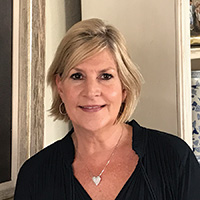When Sheila C. Johnson purchased Palm Harbor, Fla.’s failing Innisbrook Golf Resort on a hunch in July 2007, two weeks shy of it filing for bankruptcy, her mission was clear: Turn around the golf resort and save jobs. Some staff members tearfully shared with her their fears and concerns, who, like Innisbrook’s condo owners, feared “losing everything.”
Johnson, already the owner of a sprawling parcel in Virginia’s horse country, which would become Salamander Resort & Spa in 2013, toured the 900-acre Innisbrook while pondering her decision.
“I had a good feeling about the land when I came through the entrance gates, so I decided to bite the bullet,” she said.
That big bite meant purchasing the resort and infusing $25 million into its redevelopment. Still, she was apprehensive about whether she could successfully turn around this 1970s-era resort.
“One of the suites had such dated decor that it looked like it could be a room in the Playboy mansion,” she said with a chuckle.
In the beginning, Johnson admits, she was willing to do whatever it took to close meeting deals at the property.
“I’d offer my services as a motivational speaker to open the meeting, sit on a panel during the meeting, or even close the meeting,” she said.
Today, Innisbrook Resort employs 600, and since Johnson’s Salamander Hotels & Resorts took over, group bookings have grown to account for 50 percent of the overall business at the hotel.
The successful turnaround at Innisbrook led to Salamander—named after the amphibian that in myth was born in and able to walk through fire—management contracts at Hammock Beach Resort, a Salamander Golf & Spa Resort in Palm Coast, Fla., and Reunion Resort, a Salamander Golf & Spa Resort in Orlando, creating the Salamander Golf Collection.
With that kind of track record, who better to add substance to a meeting as a motivational speaker than the co-founder of cable network BET (Black Entertainment Television)? The 2001 BET sale to Viacom for $3 billion allowed Johnson to focus on hotels, catapulting her to be the most successful women in the history of the hospitality industry.
Today, when speaking to corporate groups, she provides an unparalleled resume:
- Vice chairman of Monumental Sports & Entertainment, where she has ownership in three professional sports teams.
- Movie producer and founder of the Middleburg Film Festival in Virginia.
- Board member of the Jackie Robinson Foundation.
- CEO of Salamander Hotels & Resorts, a collection of seven luxury properties.
Not bad for a woman who said she went into the hotel business mostly because, “I like to travel and know what I like when I travel!”
A Stellar Work Ethic Paves the Way for Success
There’s no doubt Johnson also has an admirable work ethic. She credits this to her neurosurgeon father and accountant mother. Johnson remembers that her parents gave her love and latitude, but expected her to toe the line. To this end, she was required to put dinner on the table for the family two to three times a week.
“That’s where I learned the basics and I’ve never forgotten it,” she said. “My father was one of 11 African American neurosurgeons in the country yet couldn’t practice in white hospitals. We moved 13 times and finally settled outside Chicago in Maywood, where he practiced at the Veterans Administration hospital.”
He even took his daughter to watch surgeries, hoping his love of medicine would rub off on her. Her mother, who graduated from Temple University, stayed home until Sheila was in seventh grade. Her parents’ love of music also influenced their daughter; she would later graduate with a music degree from the University of Illinois.
Two years before graduating college in 1971, she married Robert Johnson, who had started work at the Public Broadcasting Corp., while she, after graduation, taught violin at both the prestigious Sidwell Friends School and out of their home in Washington, D.C.
In 1979, the couple started BET, where Johnson, in addition to other duties, produced Teen Summit, a show where African American youth discussed the issues of the day. When they decided to sell the cable network in 2002, the network had become more about music videos than an educational vehicle, and Johnson admits her decision to sell was driven, at least in part, by her discomfort of the way women were portrayed in videos.
Wake Up Early, Get Organized, Hire the Right People
Up daily at the crack of dawn, Johnson starts her busy day with a workout at her home gym at Salamander Farm in Plains, Va., or walking her dog around the property, where she lives with her husband, the Hon. William T. Newman Jr.
“I start by getting my day in order. I am extraordinarily organized,” she said. “When you have a lot of projects, it’s essential to focus on proper time management.”
She used to prepare evening meals in the mornings for the family, but now that her kids are grown, that’s gone by the wayside.
Her children, Brett, 27, who has his own fashion line, and daughter Paige, 31, a champion equestrian, are excited about the hospitality industry but not enough to be involved, she said.
“They are more enamored of what I do. Even in the BET days they never watched the network much,” she said.
While Johnson’s involvement in her hotels does not include sitting in on employee interviews (except for her corporate executive committee), she said the company looks for work ethic and character.
“It’s about hiring the right people who share your vision, and it’s hard to find people with the same credo as the Salamander name implies,” she said. “The name Salamander stands for perseverance, courage and fortitude; it’s the only animal that can walk through fire. We want to find employees who fit our mission.”
Johnson believes that keeping employees is just as important.
“We treat our employees very well, and when we’ve finished a really big event, I thank them profusely,” she said. “But we’re also lucky; I have employees who love working. I don’t like people who sit around and complain.”
Don't Be Afraid to Take Another Risk
In 2007, an old friend, Abe Pollin, owner of the NHL Washington Capitals and WNBA Washington Mystics, approached Johnson about whether she’d be interested in buying the Mystics. When she asked Pollin if the team made money and he responded “not really,” Johnson remained nonplussed: “I knew I wouldn’t turn it down. Men don’t turn down risk,” she said, though her lawyers tried to talk her out of it.
Still, she offered another option: Buying into the franchise, where she became vice chairman of Monumental Sports and Entertainment (which owns the Washington Capitals, Washington Wizards and Capital One Arena in Washington), and is president and managing partner of the Washington Mystics.
When asked what it’s like working in male-dominated industries, her answer is simple: “Being a woman in a company or organization boardroom can sometimes be a lonely endeavor. However, you must remain focused because success serves as inspiration for other women.”
Johnson inspires young African American women and men through the Sheila C. Johnson Leadership Fellowship at the Center for Public Leadership at Harvard Kennedy School. After lecturing there on social impact she decided to finance and support the fellowship that benefits African American communities.
“I take 10 students a year and put them through the Kennedy School,” Johnson said. “I spend time with them and know I’ve made a difference. They can study health care, run for office or become an architect to redevelop deteriorating communities,” she said. “One of our students was homeless and living in his car, and doing construction we got him into The Wharton School, and he’s now at Morgan Stanley.”
Johnson has also instilled in her students the understanding that networking is the key to success. That’s why she also believes in face-to-face meetings.
“Irrespective of advancing technology, there is just no substitute for meeting people in person,” she said. “So many of our Florida groups choose to play golf and spend time networking over 18 holes.”
To that end, Johnson gifts each of her Kennedy Center students with a set of golf clubs for graduation so they can learn how to conduct business on the course.
“This levels the field,” Johnson explained. “Not only can they meet a lot of interesting people; they can play in the same sand box.”







